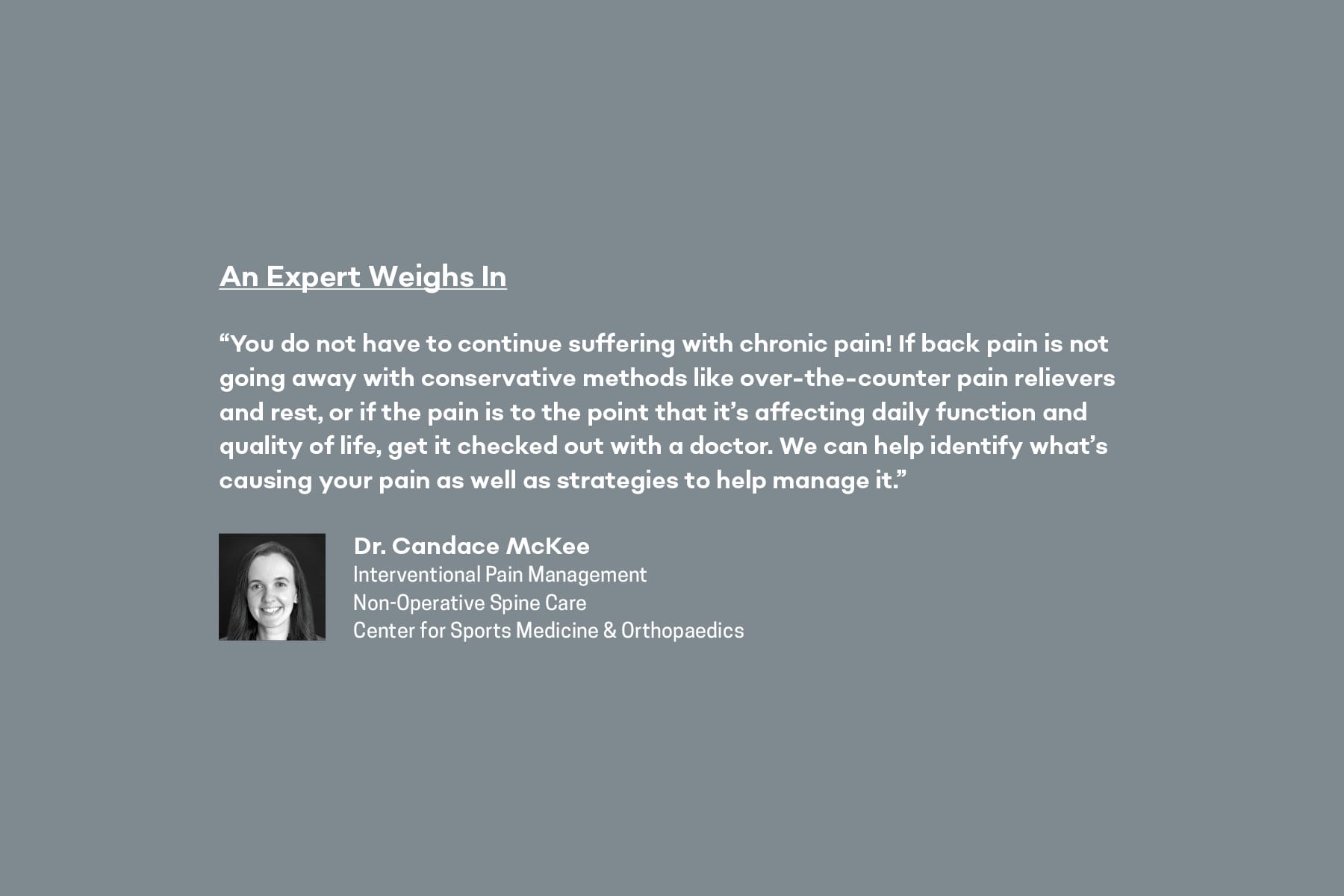Annual Bone & Joint Section
Don’t let chronic back pain keep you from living your life to the fullest.
By Lucy Morris
Common Causes of Spine Pain
In many cases, spine pain can clear up in a few days with rest and over-the-counter pain relievers. In other cases, though, the pain becomes chronic, and it starts to interfere with everyday activities and even quality of life.
Chronic spine pain can develop for several reasons –
everything from muscle or ligament strain to nerve problems, disc issues, or even arthritis – and it can range in severity. Fortunately, it is often treatable. While some cases will require surgery, many can be treated with less-invasive treatments.
Alternative Treatment Methods
The goal of treatment is to preserve or improve function and help individuals return to the activities they enjoy. Proven effective nonsurgical methods for relieving chronic spine pain include:
Injection-based Treatment
Depending on the cause and the location of the pain, there are a few different injection options. These range from epidural steroid injections to selective nerve block injections, facet joint injections, medial branch blocks, and sacroiliac joint injections. Regardless of the injection type, they are typically carried out the same way, using fluoroscopy. Fluoroscopy is a live X-ray that helps doctors guide a needle to the problem area to release medication. Injections relieve pain by reducing inflammation at the nerve root, and they can be used in the low back and neck joints. Dependent on individual response, these can be repeated as well.
Radiofrequency Ablation
Performed similarly to injections, radiofrequency ablation also uses needles to provide relief, but instead of injecting medication, heat is used to “ablate,” or stun, the nerve causing chronic pain. With this, patients can often expect relief for months or even years.
Benefits of Alternative Methods
There are multiple benefits of alternative treatments for chronic pain sufferers. First, they can eliminate the need for prolonged medication usage, which can lead to long-term side effects. They can also put off, if not eliminate altogether, the need for surgery, which can come with certain risks as well, particularly when other medical conditions are present. HS


